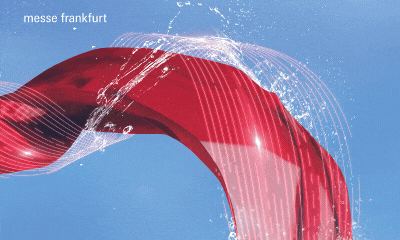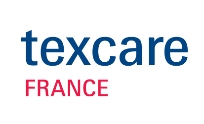 |
ITB BERLIN NOW AND STATISTA LOOK BACK ON 2020, A TURBULENT YEAR IN TRAVEL: DESPITE A MASSIVE DECLINE LAST YEAR THERE ARE SIGNS OF A MARKET RECOVERY BY 2023 (Allemagne)
Travel restrictions are affecting Germans’ summer vacation plans – Domestic tourism not impacted as severely by the pandemic – Technological innovations, personalised travel services and the current low volume of travel could trigger a resurgence of the travel industry |
Catégorie : Europe - Allemagne - Expériences exclusives
- Événements
Ceci est un communiqué de presse sélectionné par notre comité éditorial et publié gratuitement le vendredi 22 janvier 2021
2020 stood out in many ways but it was dominated by the Covid-19 pandemic. The spread of the coronavirus changed the everyday lives of billions, and for many companies it triggered an economic crisis. Nevertheless, there is cause for hope. Despite the crises of 2020, a global decline in arrivals and consequent business losses, according to the forecasts of the Mobility Market Outlook (MMO) released by the data and market research institute Statista. The global travel and tourism market is set to recover fully from the coronavirus pandemic by 2023 and achieve record turnover figures. According to Statista’s MMO the global travel and tourism revenue for 2021 is forecasted to increase by over 50% compared to 2020. New revenue records can be expected from 2023 onwards; for 2025 the MMO experts even predict a revenue growth of almost 23% versus the success year 2019.
Statista projects a 55% loss of turnover in the tourism industry for 2020. According to UNWTO figures, between 1950 and 2019 annual international arrivals increased from 25 million to almost 1.5 billion, by a total of 5,744%. By contrast, in October 2020, year-on-year international tourism arrivals fell by 72%. This also impacted the German travel industry, which according to Norbert Fiebig, president of the German Travel Association (DRV), registered a 28 billion euro decline (80%) in turnover in 2020. According to a November 2020 survey by the DIHK, 94% of companies in the German travel sector expected a turnover decline in 2020. No other industry has registered such high losses, and as a result the tourism industry has been particularly hard-hit by the coronavirus pandemic.BildRestrictions due to the pandemic and government policies have severely impacted the travel industry: travel restrictions are affecting Germans’ summer vacations plans
Looking back on travel in 2020, the tourism industry has been heavily impacted by the restrictions put in place by national governments due to the pandemic. Various statistics show that those months, in which strict measures were issued to contain its spread, were particularly challenging for the tourism sector. According to UNTWO figures, hotel bookings in Germany declined considerably during spring and autumn – in April German hotels registered a year-on-year drop in visitors of 91%.
During the first half of 2020 it became evident that summer travel in Germany would be different to previous years. According to ZDF-Politbarometer figures from a May 2020 survey of German citizens, the coronavirus pandemic affected the travel plans of more than 50% of those polled. This was also reflected in people’s destination preferences. According to a representative survey by Allianz Partners, prior to the global coronavirus outbreak 22% of German citizens favoured long-haul destinations, compared with 6% after the pandemic began. By contrast, the percentage of respondents preferring ’staycations’ more than doubled, rising from 30% to 61%. Accordingly, Google search requests for ’vacation / Germany’ tripled in late May, compared to the same period the year before.Domestic tourism has not been impacted as severely by the pandemic as international tourism: domestic tourism is expected to recover as early as 2022Projections by Statista based on WTTC, WorldData and OECD figures show that domestic tourism markets in Germany and other popular countries have not been impacted as severely by the coronavirus pandemic as international tourism. In 2019 domestic tourism accounted for close to 259 billion euros, 85% of Germany’s domestic tourism revenues, whereas for 2020 the share is projected to be 91% (approx. 173 billion euros). Accordingly, turnover in Germany’s international tourism market is forecast to shrink by over 60 %, from approximately 45 billion to around 16 billion euros. At the same time domestic tourism is expected to recover as early as 2022, with turnover reaching 2019 levels.Technological innovations, personalised travel services and the current low volume of travel could trigger a resurgence of the travel industryBoth industry experts and large travel companies expect the market to recover rapidly. Thus, the tour operator TUI recently declared that travel in summer 2021 would be “normal”. Due to constantly changing circumstances (e.g., how vaccination progresses, lockdown periods), experts’ forecasts must be treated with caution and regularly re-assessed in line with current developments. Nevertheless, it is expected that people will have a desire to catch up on the last few months of missed travel experiences as soon as possible. Furthermore, trends that are likely to take off in the tourism industry in the near future are becoming apparent. Experts at Statista forecast that technological innovations in particular will have a positive impact on the industry, e.g., AI-based, personalised services and innovative forms of presenting tourism services with VR. Thus, the current low volume of travel together with technological innovations could spur a rapid recovery of the industry.
About StatistaEstablished in 2007, Statista has 900 employees at 12 locations on four continents. Statista is a leading data and business intelligence platform and provides international market and consumer surveys. Statista’s Research & Analysis division augments the platform’s services by providing individual market research, data research, data analyses and data modelling, as well as graphic data visualisation.
About ITB Berlin and the ITB Berlin Convention
ITB Berlin 2021 will take place from Tuesday, 9 to Friday 12 March for trade visitors only and as an entirely virtual event. ITB Berlin is the World’s Leading Travel Trade Show. In 2019 a total of 10,000 exhibitors from 181 countries displayed their products and services to 160,000 visitors, including 113,500 trade visitors. As part of the virtual ITB Berlin the ITB Berlin Convention, the largest travel industry event of its kind, will also take place as a virtual event. More information is available at www.itb-berlin.com, www.itb-convention.comand in the ITB Social Media Newsroom.
About Tourismus Marketing Gesellschaft Sachsen mbH
Tourismus Marketing Gesellschaft Sachsen mbH has been promoting the Free State of Saxony as an attractive travel destination on the German and international market since the year 2000. Under the brand slogan ’SACHSEN. LAND VON WELT’, it has positioned Saxony as a quality cultural destination featuring art, culture and city tourism as well as holidays for families, health and fitness enthusiasts. Saxony’s largest markets are Germany itself, the Netherlands, Switzerland, Austria, the USA, UK, Italy, Poland, the Czech Republic, Russia and Asia. Buchungsservice Sachsen has information and advice on Saxony as a travel destination and provides a booking service.
|
|







